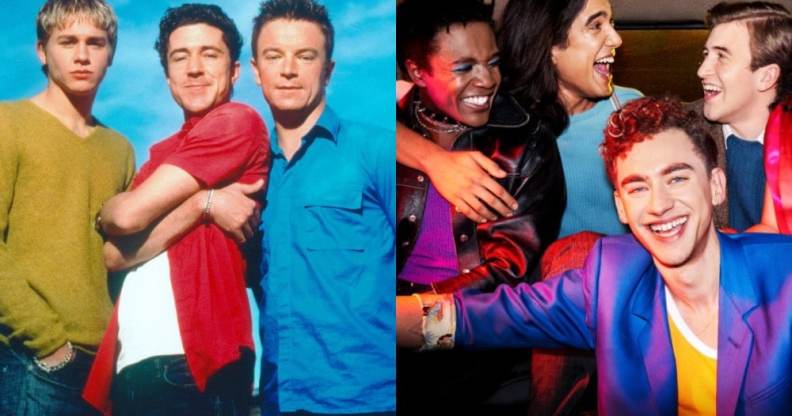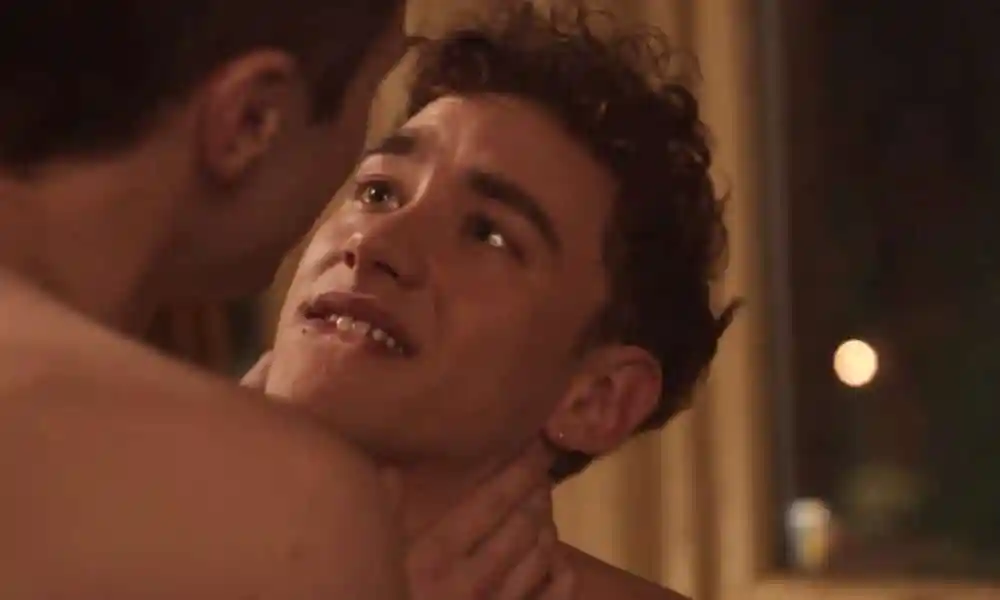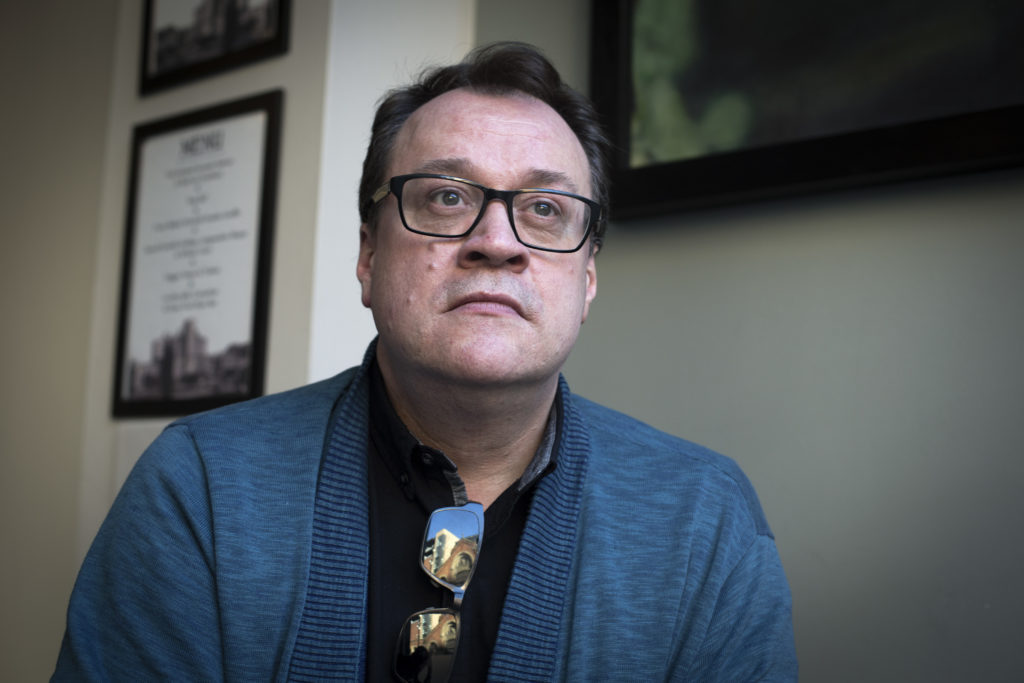Russell T Davies explains the key difference between It’s a Sin and Queer as Folk

Russell T Davies is the creator of both Queer as Folk and It’s A Sin. (Channel 4.
Russell T Davies has addressed how his new drama It’s a Sin fits in with his seminal ’90s series Queer As Folk.
It’s a Sin, which premieres on Channel 4 on 22 January, finds Davies once again illustrating the gay experience through a trio of fresh-faced characters.
Where Queer as Folk recounted the halcyon days of the late ’90s and early ’00s, It’s a Sin begins in 1981 and deals with the AIDS crisis that gripped the community in the ensuing decade.
At a recent Q&A, Davies was asked how the two series and their respective characters fit together.
Queer as Folk’s Stewart, Vince and Nathan, Davies said, had “almost come out the other side” of the crisis.
“I wouldn’t call it [Queer as Folk] a post-AIDS drama,” he continued, “but they were clever boys who’d learned to have safe sex; they’d learned the lessons that sadly were brand new facts for this generation of gay characters.”
It’s a Sin is the first British HIV/AIDS drama on TV, says Russell T Davies
It’s a Sin follows a new trio of characters – Ritchie (Olly Alexander), Roscoe (Omari Douglas) and Colin (Callum Scott Howells) – who move to London as HIV is lurking in the shadows.

Olly Alexander in Channel 4’s It’s a Sin. (Channel 4)
Davies believes his show is the first true British HIV and AIDS drama. As well as paying tribute to the victims of the crisis, he wants it to serve as a warning to younger generations not to be complacent.
“The world would be better if an awful lot of people got tested,” he noted. ‘The number of people walking around untested with HIV is frightening. We do tend to talk as though it’s over just because there’s medication. And there is apparently a younger generation growing up – some of the younger generation – thinking that it’s fine because they can get medicine. You don’t want to be on medicine; a life without medicine is a better life than one on medicine.”
He continued: “I’m always very wary about talking about it in the past tense… there’s still an awful lot of prejudice.
“My friend was trying to adopt two children recently. He’s HIV-positive.
“Three times they brought that up in court, and [his lawyers] said that’s illegal, it’s nothing to do with his status as a parent, nothing to do with his role in the adoption whatsoever. Three times the social workers kept bringing it up and the lawyers were literally saying, ‘Stop it, stop it, stop it’, and they wouldn’t.
“And in terms of the false facts that were running riot in the ’80s, that’s still running riot now, in fact, it’s fuelled even more by the internet. So many, many things haven’t changed.”

British television screenwriter and director Russell T Davies (Getty/Colin McPherson)
In a way, Davies feels the experience of the crisis is a “unifying force” for the queer community.
“And I wish it was a longer series. I wish it was 20 episodes long, because I never got to pay tribute the nursing staff who were lesbians; when some staff wouldn’t touch a patient, it was the lesbian staff who would step forward and say, ‘We’ll do those late nights, we’ll do those extra shifts’ – that’s slightly in there, but I could have written a whole episode about that.
“So that unification is is a wonderful thing. And those charities are still out there. I’m lucky enough to be patron at the Manchester George House Trust. There’s still a lot of work to be done. Now you’re looking at a time when HIV could possibly be eradicated and you think, wow, we lived through that. That was that was our moment in history, how strange is that.”
It’s a Sin launches on Channel 4 and All 4 on 22 January.

